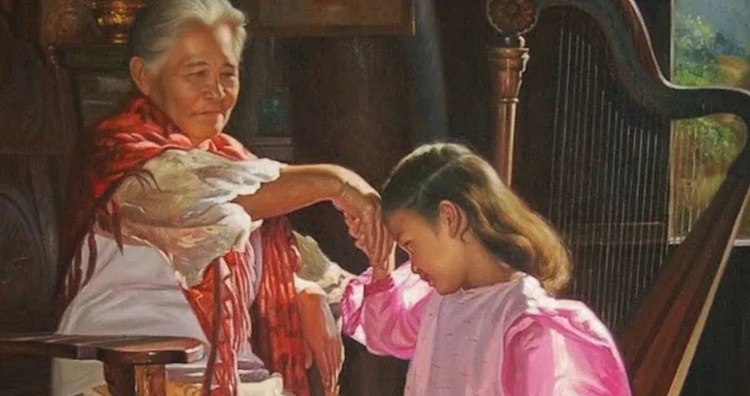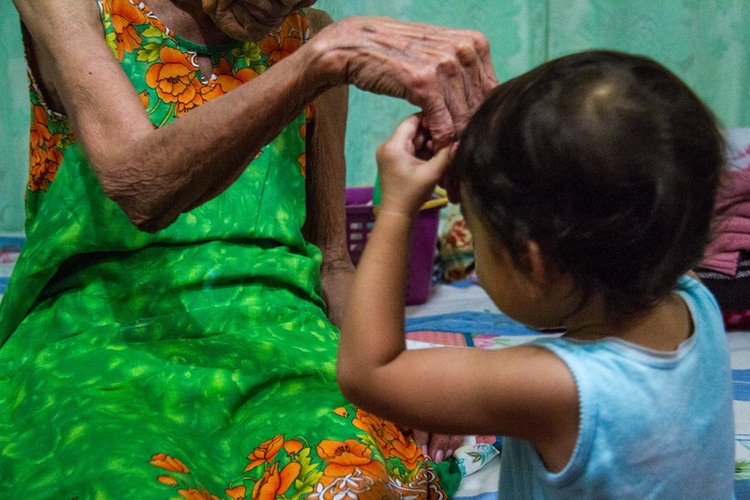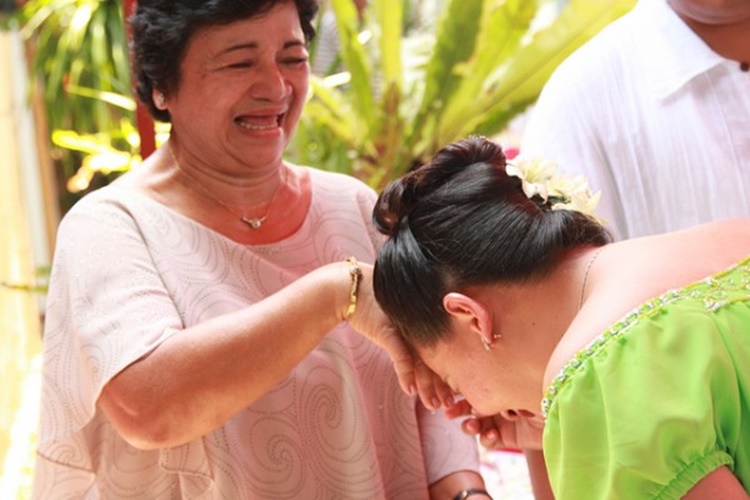MANO PO – Here are some facts about this honoring-gesture that exemplifies the deep respect and strong family values inherent in Filipino culture.
In the Philippines, “mano” or “pagmamano” is a valued tradition that shows deep respect for elders. This gesture involves bowing towards the hand of an elder and pressing one’s forehead to it.
Usually performed with the right hand, it’s a way to request a blessing. When approaching an elder, a person often says “Mano po” or “[Pa-]bless po,” which means “your hand, please.” The elder typically responds with a blessing like “God bless you.”

The term “mano” is Spanish for hand, while “po” is a Filipino word used to show respect, similar to how “sir” or “ma’am” is used in English. When combined, “mano po” translates to “your hand please,” initiating the respectful gesture.
While the tradition is called “mano” in Tagalog, it has different names in various Filipino regions, such as “amin” in Visayas and “siklod” in Kapampangan. The custom is also similar to “salim” in Indonesia and Malaysia, highlighting a shared cultural heritage in Southeast Asia.

ORIGIN
Historically, showing respect has always been important in Filipino culture. Spanish priests in the 1600s and 1700s documented various Filipino courtesies, including greeting elders with deep bows and gestures similar to pagmamano.
In modern times, Filipinos continue to practice pagmamano, especially when seeing elders for the first time in a day or upon entering a home. It’s a way to show respect and seek wisdom from elders.
The gesture emphasizes the strong family values in Filipino culture, where elderly family members often live with their children or grandchildren instead of in nursing homes.
Pagmamano is not limited to relatives. It extends to godparents, older friends, and even Catholic priests after a Mass and elderlies.
Although newer greetings like the “beso-beso” (cheek-to-cheek kiss) have become popular, especially among the younger generation, many Filipinos still hold on to the tradition of mano po.

